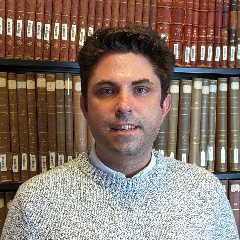 The debate over assessments—their frequency, structure, and value—has become more vibrant in recent years, first with the onset of COVID-19 and now with the advent of Generative AI. As instructors experiment with different approaches, the Math Department has increased its emphasis on assessments, yielding some early successes.
The debate over assessments—their frequency, structure, and value—has become more vibrant in recent years, first with the onset of COVID-19 and now with the advent of Generative AI. As instructors experiment with different approaches, the Math Department has increased its emphasis on assessments, yielding some early successes.
Brendan Kelly, Senior Preceptor and Director of Introductory Mathematics, notes that one of the main objectives in Harvard’s Math preparatory sequence is to provide students with a consistent, cumulative experience so that each course effectively builds off prior ones, or hands off to subsequent ones. However, the COVID-19 pandemic brought about a unique challenge. Kelly and his team observed that course-by-course experimentation with assessments during this period resulted in inconsistencies across courses, and as a result students being inadequately prepared for higher level Math courses - in turn prompting a reevaluation of their approach.

 Sheila Heen, Thaddeus R. Beal Professor of Practice and a Deputy Director of the Harvard Negotiation Project at Harvard Law School (HLS), specializes in navigating challenging negotiations where emotions, relationships, and legal components are on the line. Heen is responsible for and team-teaches in Harvard Law School’s three Negotiation Workshop courses, with enrollment of over 400 law students and cross-registrants annually. The workshops are a primary way that students meet the new HLS graduation requirement to take a course that teaches negotiation, relationship management, and leadership skills. Over the last 40 years, the Negotiation Workshop has developed a self-reflective and experiential pedagogy that challenges faculty to walk their own talk as they both teach and learn alongside students. In the classroom, Heen and her faculty colleagues encourage students to reflect on their learning experiences, understand their decision-making processes, and apply theoretical knowledge in practical contexts to enhance their negotiation skills.
Sheila Heen, Thaddeus R. Beal Professor of Practice and a Deputy Director of the Harvard Negotiation Project at Harvard Law School (HLS), specializes in navigating challenging negotiations where emotions, relationships, and legal components are on the line. Heen is responsible for and team-teaches in Harvard Law School’s three Negotiation Workshop courses, with enrollment of over 400 law students and cross-registrants annually. The workshops are a primary way that students meet the new HLS graduation requirement to take a course that teaches negotiation, relationship management, and leadership skills. Over the last 40 years, the Negotiation Workshop has developed a self-reflective and experiential pedagogy that challenges faculty to walk their own talk as they both teach and learn alongside students. In the classroom, Heen and her faculty colleagues encourage students to reflect on their learning experiences, understand their decision-making processes, and apply theoretical knowledge in practical contexts to enhance their negotiation skills. 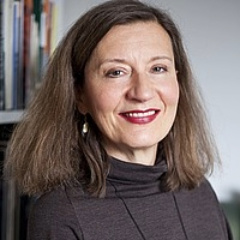 Ewa Lajer-Burcharth, William Dorr Boardman Professor of Fine Arts, is an art historian who focuses on 18th- and 19th-century European and contemporary post-1970s art. Lajer-Burcharth uses physical objects – such as paintings, sculptures, and textile arts – to enable more immersive forms of learning that enable students to experience objects of study in a hands-on way that is not possible with text-heavy teaching methods. These objects serve as a primary teaching tool for encouraging new perspectives and interrogating original sources. Students examine various objects from museum and library collections under the expert guidance of curators, and eventually assist in the curation of an exhibit. This allows students to have hands-on experience in both understanding and creating, rather than be solely trapped by reading and speaking. While her courses use physical objects as a point of reference, similar opportunities exist in other classroom contexts where students can contextualize the motivations of authors, musicians, and inventors, for example.
Ewa Lajer-Burcharth, William Dorr Boardman Professor of Fine Arts, is an art historian who focuses on 18th- and 19th-century European and contemporary post-1970s art. Lajer-Burcharth uses physical objects – such as paintings, sculptures, and textile arts – to enable more immersive forms of learning that enable students to experience objects of study in a hands-on way that is not possible with text-heavy teaching methods. These objects serve as a primary teaching tool for encouraging new perspectives and interrogating original sources. Students examine various objects from museum and library collections under the expert guidance of curators, and eventually assist in the curation of an exhibit. This allows students to have hands-on experience in both understanding and creating, rather than be solely trapped by reading and speaking. While her courses use physical objects as a point of reference, similar opportunities exist in other classroom contexts where students can contextualize the motivations of authors, musicians, and inventors, for example.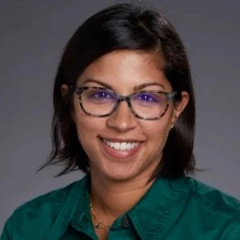 Shoba Ramanadhan, Associate Professor of Social and Behavioral Sciences (HSPH), creates curricular experiences that highlight community partnerships and incorporates diverse student experiences for shared knowledge building in the classroom and within the community. To do this, Ramanadhan integrates principles of
Shoba Ramanadhan, Associate Professor of Social and Behavioral Sciences (HSPH), creates curricular experiences that highlight community partnerships and incorporates diverse student experiences for shared knowledge building in the classroom and within the community. To do this, Ramanadhan integrates principles of 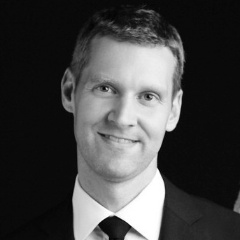 Gavin Porter, Lecturer in Immunology (HMS), helps students develop critical skills for research paper analysis. Prior to 2019, his students would individually read papers and submit their analysis through a traditional templated question approach. Due to the repetitive nature of the assessment product and after realizing that all students could benefit from each other’s questions and ideas, Dr. Porter transitioned this assignment to a collaborative one using a social annotation platform created at Harvard called
Gavin Porter, Lecturer in Immunology (HMS), helps students develop critical skills for research paper analysis. Prior to 2019, his students would individually read papers and submit their analysis through a traditional templated question approach. Due to the repetitive nature of the assessment product and after realizing that all students could benefit from each other’s questions and ideas, Dr. Porter transitioned this assignment to a collaborative one using a social annotation platform created at Harvard called  The debate over assessments—their frequency, structure, and value—has become more vibrant in recent years, first with the onset of COVID-19 and now with the advent of Generative AI. As instructors experiment with different approaches, the Math Department has increased its emphasis on assessments, yielding some early successes.
The debate over assessments—their frequency, structure, and value—has become more vibrant in recent years, first with the onset of COVID-19 and now with the advent of Generative AI. As instructors experiment with different approaches, the Math Department has increased its emphasis on assessments, yielding some early successes.
 Sharad Goel, Professor of Public Policy (HKS), teaches statistical methods in his application-oriented course,
Sharad Goel, Professor of Public Policy (HKS), teaches statistical methods in his application-oriented course, 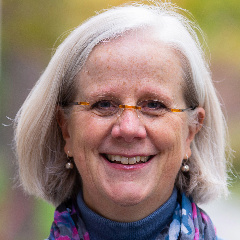 Allison Pingree, Associate Director of Instructional Support and Development for the Harvard Graduate School of Education's Teaching and Learning Lab, partners with faculty to enhance teaching and learning across contexts. With over 25 years of experience as a faculty and educational developer, she works with individual instructors and teaching teams to build effective and inclusive learning communities, consults on course design, and leads professional learning programs on a multitude of topics and themes. Pingree is guided by her commitment to “deep listening, skilled facilitation, and reflective practice” as she coaches faculty and develops new programming to foster pedagogical innovation and best practices. At this stage in the semester, she urges faculty to consider gathering student feedback on their courses and implementing changes to respond to student concerns.
Allison Pingree, Associate Director of Instructional Support and Development for the Harvard Graduate School of Education's Teaching and Learning Lab, partners with faculty to enhance teaching and learning across contexts. With over 25 years of experience as a faculty and educational developer, she works with individual instructors and teaching teams to build effective and inclusive learning communities, consults on course design, and leads professional learning programs on a multitude of topics and themes. Pingree is guided by her commitment to “deep listening, skilled facilitation, and reflective practice” as she coaches faculty and develops new programming to foster pedagogical innovation and best practices. At this stage in the semester, she urges faculty to consider gathering student feedback on their courses and implementing changes to respond to student concerns. 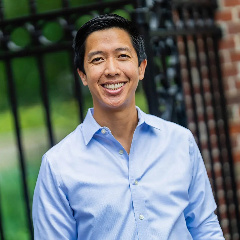
 Vijay Janapa Reddi, Associate Professor (SEAS) and director of the Edge Computing Lab, is an applied machine learning computer architect. As a scholar with deep knowledge of how artificial intelligence (AI) works, Janapa Reddi offers a unique perspective on both the challenges and opportunities generative AI presents. Generative AI platforms, such as ChatGPT, are changing how students interact with course material and setting new standards for the skills necessary for future professional fields. While Janapa Reddi is cautious about implementing exercises that leverage such platforms in his
Vijay Janapa Reddi, Associate Professor (SEAS) and director of the Edge Computing Lab, is an applied machine learning computer architect. As a scholar with deep knowledge of how artificial intelligence (AI) works, Janapa Reddi offers a unique perspective on both the challenges and opportunities generative AI presents. Generative AI platforms, such as ChatGPT, are changing how students interact with course material and setting new standards for the skills necessary for future professional fields. While Janapa Reddi is cautious about implementing exercises that leverage such platforms in his  Rebecca Nesson, Dean for Academic Programs, SEAS, and Charles R. Nesson, William F. Weld Professor of Law at Harvard Law School, Founder of the Berkman Klein Center for Internet & Society, and Principal Investigator of BKC’s
Rebecca Nesson, Dean for Academic Programs, SEAS, and Charles R. Nesson, William F. Weld Professor of Law at Harvard Law School, Founder of the Berkman Klein Center for Internet & Society, and Principal Investigator of BKC’s 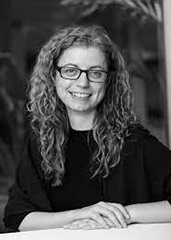 Rosalea Monacella, Design Critic in Landscape Architecture at the Graduate School of Design (GSD), works to create opportunities for students to build collaborative skills and facilitate peer-to-peer learning by “embed[ding] the techniques of joint problem-solving and ideas development” in her
Rosalea Monacella, Design Critic in Landscape Architecture at the Graduate School of Design (GSD), works to create opportunities for students to build collaborative skills and facilitate peer-to-peer learning by “embed[ding] the techniques of joint problem-solving and ideas development” in her 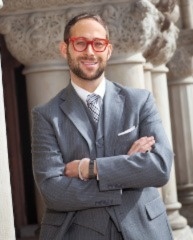 I. Glenn Cohen, James A. Attwood and Leslie Williams Professor of Law, Deputy Dean at Harvard Law, and Faculty Director of the Petrie-Flom Center for Health Law Policy, Biotechnology & Bioethics, teaches courses on health law and civil procedure. As Deputy Dean, Professor Cohen instituted a new pre-orientation program for law students,
I. Glenn Cohen, James A. Attwood and Leslie Williams Professor of Law, Deputy Dean at Harvard Law, and Faculty Director of the Petrie-Flom Center for Health Law Policy, Biotechnology & Bioethics, teaches courses on health law and civil procedure. As Deputy Dean, Professor Cohen instituted a new pre-orientation program for law students,  Stephanie Pierce, Professor of Organismic and Evolutionary Biology, and Mansi Srivastava, John L. Loeb Associate Professor of the Natural Sciences co-developed a course for undergraduates with a goal of reaching a larger number of students and exploring similar sets of questions from different angles. They bring their expertise together in a novel course that truly represents the aims of integrative biology:
Stephanie Pierce, Professor of Organismic and Evolutionary Biology, and Mansi Srivastava, John L. Loeb Associate Professor of the Natural Sciences co-developed a course for undergraduates with a goal of reaching a larger number of students and exploring similar sets of questions from different angles. They bring their expertise together in a novel course that truly represents the aims of integrative biology: 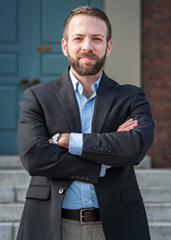 Shai Dromi, Associate Senior Lecturer on Sociology (FAS), teaches courses on philanthropy, activism, and collective identity. Dromi frequently incorporates active learning exercises and collaborations into his courses. In his undergraduate course, Philanthropy and the Nonprofit Sector, he partners with a wide variety of Harvard offices, including
Shai Dromi, Associate Senior Lecturer on Sociology (FAS), teaches courses on philanthropy, activism, and collective identity. Dromi frequently incorporates active learning exercises and collaborations into his courses. In his undergraduate course, Philanthropy and the Nonprofit Sector, he partners with a wide variety of Harvard offices, including 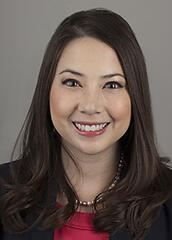 Dr. Rose Molina
Dr. Rose Molina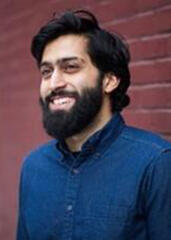 Musa Syeed, Briggs Copeland Lecturer on English, teaches screenwriting in the Creative Writing Program. Students are introduced to documentary and hybrid filmmaking in his course,
Musa Syeed, Briggs Copeland Lecturer on English, teaches screenwriting in the Creative Writing Program. Students are introduced to documentary and hybrid filmmaking in his course, 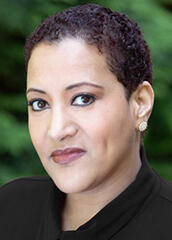 Tsedal Neeley, Naylor Fitzhugh Professor of Business Administration and Senior Associate Dean for Faculty Development and Research, first experimented with simulations in the classroom as a doctoral student. She crafted vignettes and scenarios on paper aimed at developing empathy, cross-cultural awareness, and behavioral change and presented them to students. As she continued her research on fostering collaboration between distributed team members from different cultures and with different language abilities, Neeley sought to develop a virtual teaching tool that could simulate these dynamics for students and provide an opportunity to gain insight into the cognitive and emotional challenges that arise for members and managers of global teams. She developed an online Global Collaboration Simulation,
Tsedal Neeley, Naylor Fitzhugh Professor of Business Administration and Senior Associate Dean for Faculty Development and Research, first experimented with simulations in the classroom as a doctoral student. She crafted vignettes and scenarios on paper aimed at developing empathy, cross-cultural awareness, and behavioral change and presented them to students. As she continued her research on fostering collaboration between distributed team members from different cultures and with different language abilities, Neeley sought to develop a virtual teaching tool that could simulate these dynamics for students and provide an opportunity to gain insight into the cognitive and emotional challenges that arise for members and managers of global teams. She developed an online Global Collaboration Simulation, 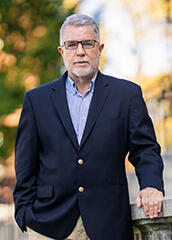
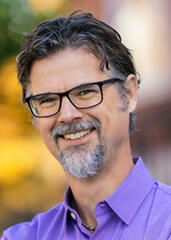 Luke Miratrix, Associate Professor and Co-Faculty Director of the PhD in Education Program at the Harvard Graduate School of Education, teaches graduate level statistics and data science courses, including
Luke Miratrix, Associate Professor and Co-Faculty Director of the PhD in Education Program at the Harvard Graduate School of Education, teaches graduate level statistics and data science courses, including 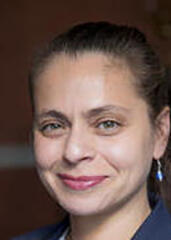 Flavia Peréa, Lecturer in Sociology (FAS) and Director of the Mindich Program in Engaged Scholarship, teaches
Flavia Peréa, Lecturer in Sociology (FAS) and Director of the Mindich Program in Engaged Scholarship, teaches 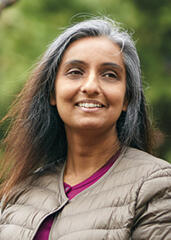 Aisha Yousafzai, Associate Professor of Global Health, launched the
Aisha Yousafzai, Associate Professor of Global Health, launched the 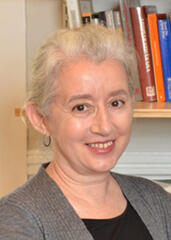 Janet Gyatso, Hershey Professor of Buddhist Studies, teaches seminars on Buddhist and Tibetan intellectual history and literature at Harvard Divinity School and in the Faculty of Arts and Sciences. Gyatso aims to “cultivate an experimental and convivial atmosphere in the classroom” that encourages students to draw connections between the past and present, interrogate a diverse set of primary sources, and create a community that allows students to feel comfortable taking intellectual risks and asking questions. This is particularly important in her field, which is often unfamiliar and engages with historical contexts that may seem distant from contemporary issues. Gyatso inspires her students to draw connections between the literature, philosophy, religion, and arts of the past and contemporary conversations on topics ranging from identity to gender to climate. By encouraging students to ask questions and find links between past and present, Gyatso is able to help them find an entryway into otherwise unfamiliar topics.
Janet Gyatso, Hershey Professor of Buddhist Studies, teaches seminars on Buddhist and Tibetan intellectual history and literature at Harvard Divinity School and in the Faculty of Arts and Sciences. Gyatso aims to “cultivate an experimental and convivial atmosphere in the classroom” that encourages students to draw connections between the past and present, interrogate a diverse set of primary sources, and create a community that allows students to feel comfortable taking intellectual risks and asking questions. This is particularly important in her field, which is often unfamiliar and engages with historical contexts that may seem distant from contemporary issues. Gyatso inspires her students to draw connections between the literature, philosophy, religion, and arts of the past and contemporary conversations on topics ranging from identity to gender to climate. By encouraging students to ask questions and find links between past and present, Gyatso is able to help them find an entryway into otherwise unfamiliar topics.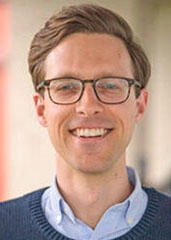 Kaighin McColl, Assistant Professor of Earth and Planetary Sciences and of Environmental Science and Engineering, is a hydrologist who extended his General Education course,
Kaighin McColl, Assistant Professor of Earth and Planetary Sciences and of Environmental Science and Engineering, is a hydrologist who extended his General Education course, 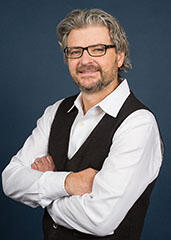 Matt Andrews, Edward S. Mason Senior Lecturer in International Development at Harvard Kennedy School, is the faculty director of the
Matt Andrews, Edward S. Mason Senior Lecturer in International Development at Harvard Kennedy School, is the faculty director of the 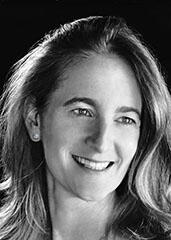 Candace Bertotti,
Candace Bertotti, 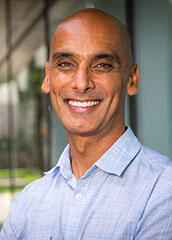 Salil Vadhan, Vicky Joseph Professor of Computer Science and Applied Mathematics & Lead PI on Harvard’s Privacy Tools Project,
Salil Vadhan, Vicky Joseph Professor of Computer Science and Applied Mathematics & Lead PI on Harvard’s Privacy Tools Project, 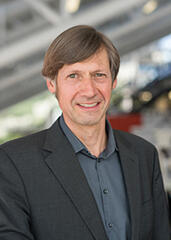
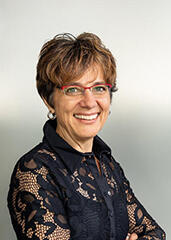 Martin Bechthold, the Kumagai Professor of Architectural Technology at the Harvard School of Design
Martin Bechthold, the Kumagai Professor of Architectural Technology at the Harvard School of Design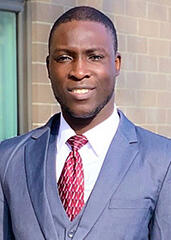 Taiwo Ehineni,
Taiwo Ehineni, 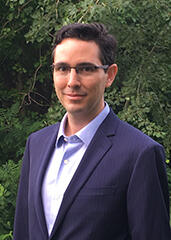 David Atherton, Assistant Professor of East Asian Languages and Civilizations, taught
David Atherton, Assistant Professor of East Asian Languages and Civilizations, taught 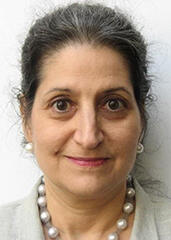 Linda Kaboolian, Instructor at Harvard T.H. Chan School of Public Health
Linda Kaboolian, Instructor at Harvard T.H. Chan School of Public Health